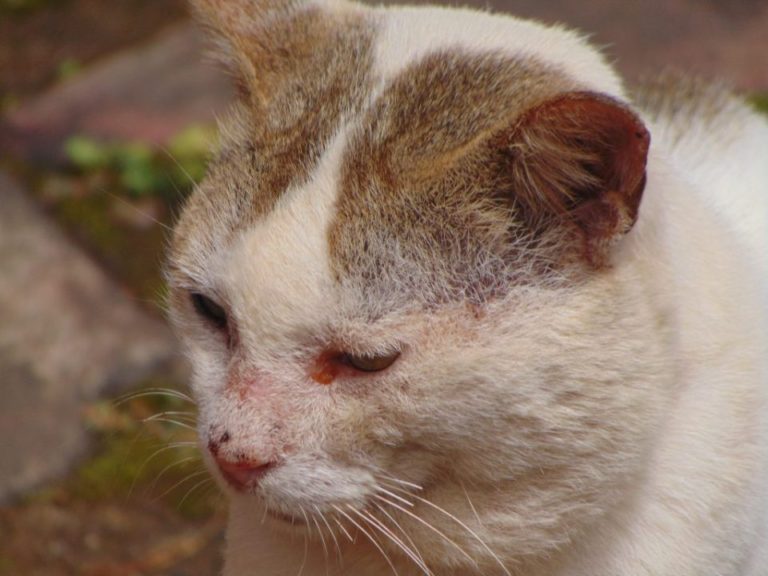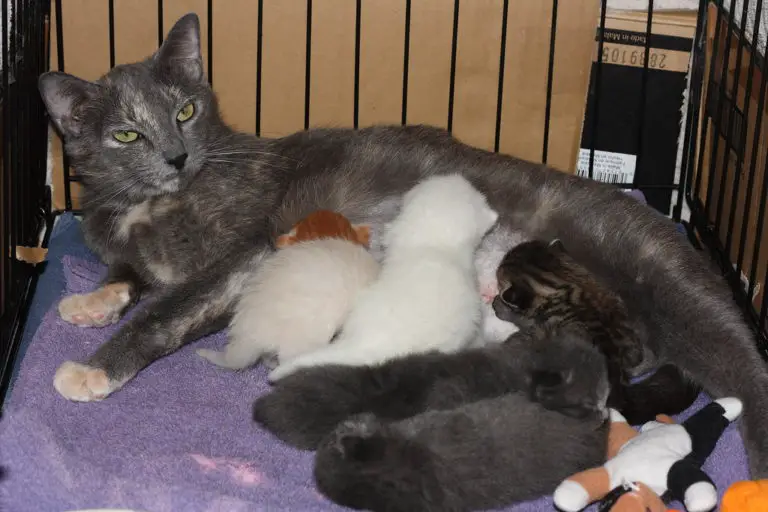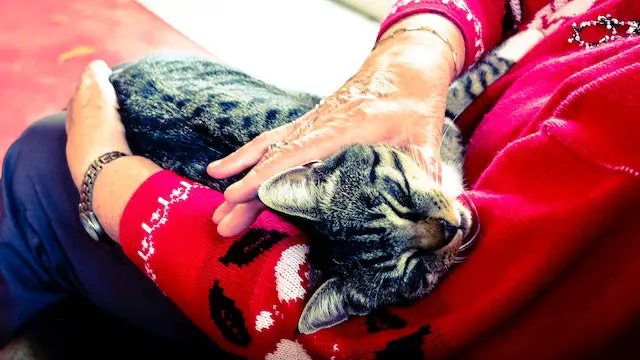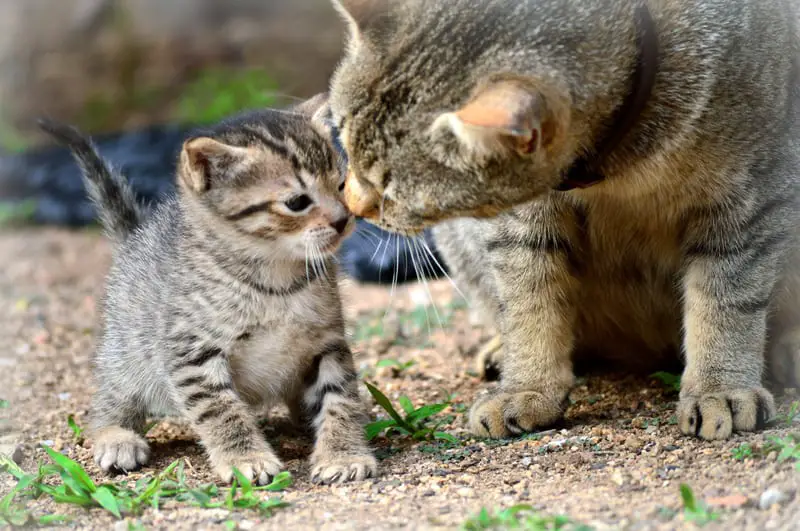
The first few days after bringing home a kitten are the most critical. If your cat is showing signs of distress, this means that you need to take it back to the veterinarian immediately.
Cat owners often worry about how long it takes their cats to get used to a new kitten, but in reality it only takes a few short weeks before they’re comfortable and bonding with each other.
If your cat has never been around a kitten before, then it may take longer so that he can get used to it and bond with it. This is especially true if the new kitten is small or young and needs time for its eyesight to develop properly.
It takes a while for a cat to get used to a new kitten. The process is pretty much the same as it is for dogs, although cats are more independent and less likely to form a pack with other cats. Cats can also be very territorial, so they may not like sharing their home with another cat.
Cats tend to be very possessive of their home and territory, so they may be reluctant to share it with any other members of their family.
They also have strong senses of smell, which can make them nervous around new people and pets. You may need to let your cat adjust slowly before introducing a new kitten into the household.
You might have trouble getting both kittens used to each other at first because they are so different from each other on many levels.
For example, one may be more outgoing than the other or have different personality traits that make them incompatible in some ways.
If you find it difficult to get them used to each other at first, try giving each cat time alone with their own food dishes and toys instead of using food as an incentive when introducing them.
What Do I Do if My Cat Doesn’t Like My New Kitten?
It’s a big deal to get a kitten. You’re no longer the only one in your home — and you want your new cat to be happy and well-adjusted.
But it’s also important not to go overboard when introducing a kitten to a cat already in your home. If you do, you may end up with an unhappy kitten who doesn’t want anything to do with the other animal.
The best way to introduce two cats is by patiently waiting until they are both calm. Then, they can meet each other in a neutral environment where they are unlikely to have any negative feelings toward each other.
If your cat hates your new kitten, it might not be the best idea to introduce them right away. This is because some cats are very territorial and may feel threatened by a new addition to the family.
However, if you want to introduce your kittens and make sure they get along well with each other, here are some tips:
Feed them separately. After you feed your cats, let them play for a little bit before you separate them. You can use food bowls or toys as barriers so they won’t accidentally hurt each other while they’re playing.
Keep an eye on them. If one of them seems too aggressive towards the other, separate them immediately. You don’t want this to become a habit that could lead to aggression between them later on in life.
Try different places for feeding time. Try feeding in different rooms so that both cats aren’t confined to one area for long periods of time during their meals.
How Long Will Older Cat Hiss at Kitten?
It depends on the age of the older cat and the age of the kitten. An older cat’s hormones change as it ages. This can cause it to react differently when it sees a kitten.
The first thing to consider is whether or not your cat has ever had a litter before. If he has, then he may be more likely to adopt the kitten if he has been around them before and they are accustomed to him.
Another thing to consider is how much attention you give your older cats when they are around toddlers or babies. If you let them sleep in their beds with you, then they might be less likely to hiss at your little one than if they are outside in a separate room when that happens.
Cats and kittens are usually curious about each other as they grow up. However, some cats have a strange tendency to hiss at their kittens from time to time. This is not necessarily a sign of aggression but it may be a reaction to something the kitten has done or said.
Cats are territorial animals and will guard their territory against any intruders. If a kitten ventures too close to the cat’s hunting area, the cat may hiss at him or her to ward off any possible threat.
Kittens and cats will grow into mature cats who have learned not to chase after each other or engage in play fights with each other anymore. Cat owners should reassure their pets that they are fine with the new baby in the house by giving them plenty of attention and affection.
Warning Signs When Introducing Cats
Cats are very different from dogs. They’re not interested in playing games or having fun, and they don’t really want to cuddle. Because of this, it can be a challenge for cat owners to introduce their new pet to their family.
Cats don’t like to be touched. They won’t let you pick them up and hold them, much less cuddle them. They prefer being left alone because they’re not used to the attention they get from humans.
The good news is that cats are extremely affectionate with one another! You just need to know how to socialize with your cat at an early age so that he or she will accept you as a member of the family when you eventually bring home a new pet.
No matter how well you think you know your cat, it’s always a good idea to have a veterinarian check him over before you take him home. Even if your cat seems like he’s been fine for years, a few subtle signs can indicate that there may be issues.
The most common warning signs are:
- Weight loss
- Changes in personality
- Frequent or prolonged vomiting or diarrhea
When it comes to introducing your cat to a new environment, there are some things you can do to make the transition easier for everyone. Many cats will have a more difficult time adjusting than others. Here are some tips that can help make the transition as smooth as possible:
1. Make sure your cat is in good health and well-nourished before moving him or her outside.
2. Consider getting a carrier for your cat, so he or she does not have to be confined inside the house altogether.
3. Give your cat some time to adjust to his new surroundings before letting him outside on his own.
Will My Older Cat Hurt the Kitten?
The answer is no, your older cat will not hurt the kitten.
Some people worry that their adult cats might start to show aggression towards the kitten, but this rarely happens. Cats are territorial and always want to be on top of things, so when a new cat comes into the house, it can be quite scary for them. But if your older cat has been around other cats for a long time, he will know how to deal with it.
Cats are very good at keeping their distance from other animals, and kittens rarely come up to adult cats. If you have an older cat that is friendly and approachable, it will probably be fine with the kitten.
The best way to avoid any problems is to introduce both cats at once — but not in the same room or area of the house. Make sure that there are no other cats in the room you’re planning on introducing them in.
If there aren’t any other cats in the room, you can do this right away by leaving them alone together for 15 minutes or so before letting them meet each other.
If there are other cats in your house, keep them separated from your new kitten until they are older and more used to each other.
Can I Leave My Kitten Alone with My Cat?
The answer is yes. You can leave your kitten alone with a cat. But it is not the best thing for both of the pets to be left alone for long periods of time. They will get bored, which may lead to destructive behavior, and you don’t want that in either of your pets.
You can leave your kitten alone with your cat. When you get home from work, you will have to leave your cat in the care of your kitten for a short time.
This is not recommended for long periods of time, but if you are going to be away from home for only a few days then it can be fine.
If you have a larger feline and she has been trained well, she will probably not cause any trouble at all. However, if you have a smaller kitten and she does not know how to behave around bigger cats then there could be problems. In this case, it is best that you find another place for her to stay while you are away from the house.
It is also important to note that when you bring back your new cat and put him or her in with your old one, they may fight over territory or food or something else that they want as spoils of war!
If this happens then separate them immediately so that they do not hurt each other and make sure that they do not come into contact with each other during the day because this could lead to serious injury or even death!
Do Cats Get Jealous of New Kittens?
Cats can get jealous of kittens. This is a fact that many cat owners may not be aware of. But, if you have more than one cat in your household, then you should be aware that it’s possible for one cat to feel jealous of another.
Cats are very territorial creatures by nature. They like to claim their territory and keep others out of it. They will often try to chase away other cats when they encounter them on your property.
While this is not always the case, there are instances where cats do show signs of jealousy when they see a new kitten or baby animal in your home.
It’s important to remember that while cats may seem like they don’t care about being around other animals except for when they want to play with them, this isn’t always true!
If you have more than one cat and new kittens, it is possible that your cats may feel jealous of the new kittens. This is because cats are territorial creatures and they do not like to share their territory with other cats.
The good news is that jealousy between cats is not usually a problem because they will soon get over it and have a good time playing with the young ones. The best way to prevent this from happening is by keeping all of your pets in one room so they know where their territory begins and ends.

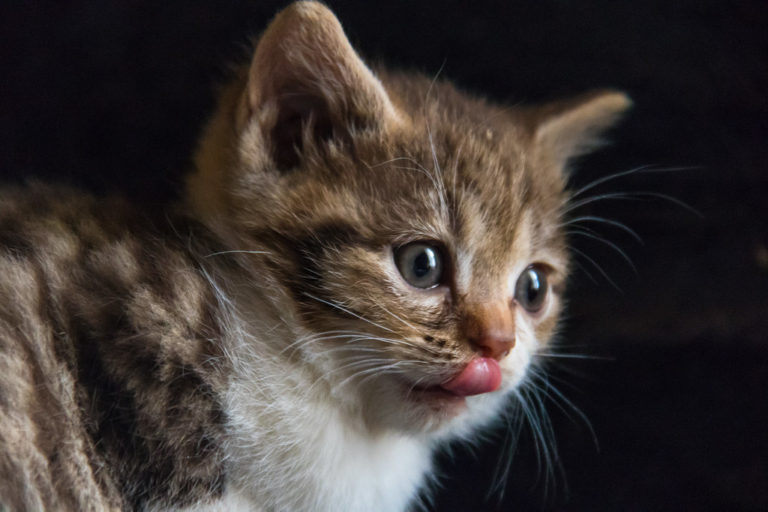
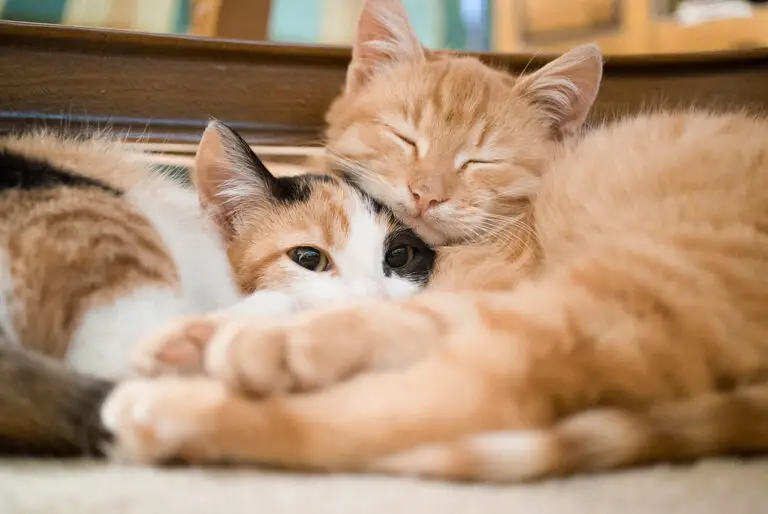
![Cats Voices Change Do Cats Voices Change? [Cat Laryngitis Explained]](https://kitteria.com/wp-content/uploads/2022/07/Cats-Voices-Change-768x512.jpg)
